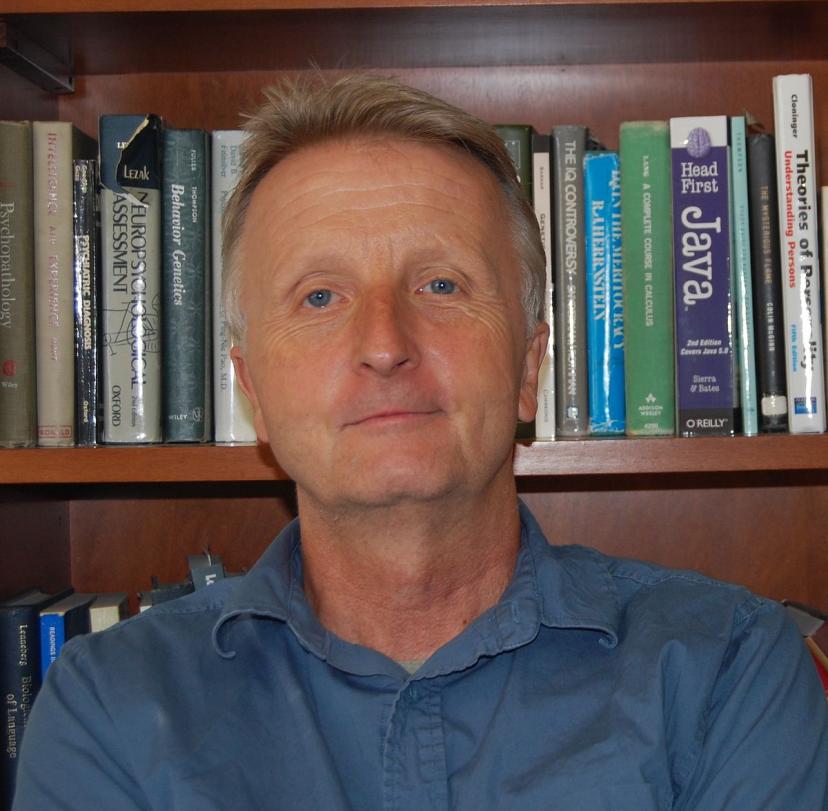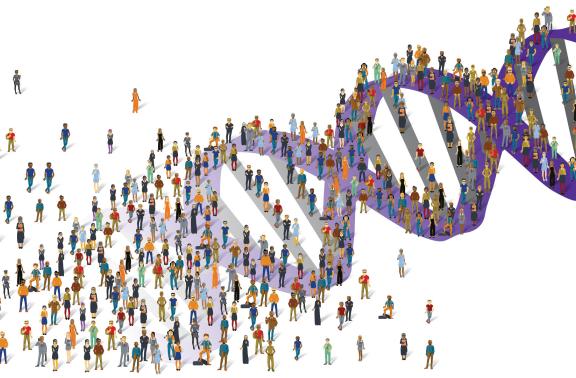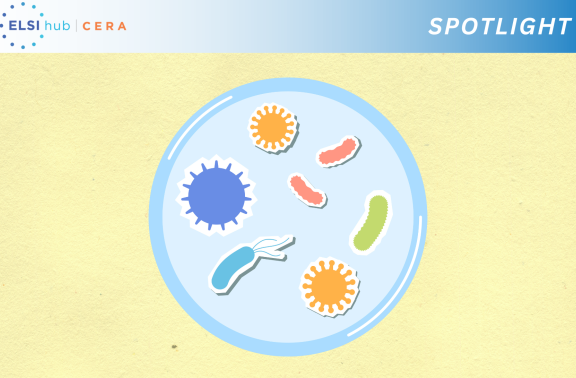
Scientific Dualisms
Eric Turkheimer is the Hugh Scott Hamilton Professor of Psychology at the University of Virginia.
I agreed to write a response to Erik Parens’ sympathetic comment on my book, Understanding the Nature-Nurture Debate, but much of his comment is too kind and supportive to warrant a reply. Erik does what he has done for at least twenty years with regard to my work: exposes a few cracks in my bioethical thinking, returns to his ongoing theme of human subject-object duality, and (especially, given my too-casual approach to the technicalities of philosophical discourse) holds my feet to the fire about inconsistent usage of terms like “influence.” Erik does this not only across chapters of the book but also across the course of our decades-long intellectual relationship. I appreciate all that; it provokes no rebuttal from me. Like the c and the k in our surnames, Erik and I are two versions of a similar beast. He is a bioethicist who writes about empirical science; I am an empirical scientist who writes about bioethics. Our differences have their origin in the mirror-images of our outlooks.
Science is about causes, and reaching conclusions about causes requires eliminating potential confounds. The experimental method is a razor-sharp tool for accomplishing that goal. When objects are assigned at random to experimental conditions the confounds average out, leaving only the experimental manipulation as a possible cause. I use “objects” deliberately. When those objects are living beings, we place ethical restrictions on what scientists are allowed to do in the course of randomizing them. In so-called “lower animals”, those restrictions are relatively minor, and as a result our manipulations of animals are sometimes controversially brutal, but they are scientifically effective. With human beings, most such manipulations are forbidden. We can’t breed people, we can’t raise people under controlled conditions, we can’t “sacrifice” people (an interesting theological euphemism). These prohibitions are the very foundation of ELSI.
Two reflections on ethical restrictions on human science are necessary. The first reflection is scientific: human-subject restrictions place severe limits on the potential success of our non-experimental efforts. No phenomenon in the universe is more causally confounded than human behavior. The ur-problem of behavior genetics is that biological parents provide rearing environments to their own children. So do cows, except that we give ourselves permission to remove calves from their mother’s care, randomize them, and raise them as we choose. Social science genomics is an extended effort to accomplish something similar without unethical manipulation of humans, by using statistics dating from Galton and Fisher to partition the variance of free-ranging people, protected by ethical standards from deterministic randomization by scientists. If I had a nickel for every twin study that began with a homily about using the classical twin method to “disentangle” the causal effects of nature and nurture, I would be better funded than NIH has ever allotted me. And here is the first overarching theme of my book: the quasi-experimental workarounds applied to human science don’t work very well. At the risk of correcting my superiors, Galton and Fisher were wrong. Non-experimental analysis of variance cannot disentangle the independent causal processes underlying complex human behavior. God knows we have tried.
The second reflection is bioethical: why, exactly, do we insist on such stringent ethical standards when we conduct science on human beings? We haven’t always done so, of course. A century ago, eugenicists were willing to consider human breeding, and those ideas, in modern form, are unfortunately still in circulation. The Nazis conducted abhorrent experiments on living humans. Why does our naturalized knowledge that humans are not very different biologically from cows not authorize scientists to sacrifice humans like cows? Erik says, correctly as far as it goes, that it is because as conscious humans we can reflect on the experience and suffering of other humans, but I think it runs deeper than that. We believe in our own self-determination; we insist on our own self-determination. The victims of involuntary sterilization and Mengele’s experiments were denied their self-determination and thus their humanity. In a eugenic world, people would no longer be free, but social scientists could finally be successful in disentangling human causation. Disentangled human causation is eugenics perfected.
None of this, it seems to me, requires the dualism that Erik attributes to my book. At least, not traditional substance or deist dualism, both of which I explicitly reject. My point is that even those of us who reject those traditional dualisms remain ethical and scientific dualists. We apply different ethics to human beings, and those ethics restrict our ability to understand ourselves scientifically. It’s not, as Erik suggests, that I am “cautioning against trying to discover such causal pathways and genetic mechanisms on the grounds that they ‘might show’ that we are inside the domain of science.” Rather, I am insisting that any potentially successful “trying” of the kind to which Erik refers requires eugenics. Instead of eugenic control of human behavior, scientists have spent a century and a half trying to analyze natural human variation without eugenic control, harmlessly but with little success.
All of this leads to the central disagreement between Erik and Eric. Erik thinks Eric is holding his finger in an ethical dike against real scientific possibilities. Eric thinks the ethically imposed methodological proscriptions applied to human science are (one hopes) permanent, blocking the usual expectation of inexorable progress in the natural sciences. It’s not that we can’t do the science because we are afraid of the conclusions. We can’t do the science because obvious ethical considerations, grounded in universal ethics and independent of empirical conclusions, prohibit us from doing the science. Those prohibitions have consequences, to the frustration of ambitious scientists. As the potential objects of prohibited eugenic science, however, we must insist that those prohibitions remain in place forever. That is the duality that matters.
Read the essay that inspired this comment, Is Human Agency in Danger of Being Drowned by Genetic Determinism?, by Erik Parens.


